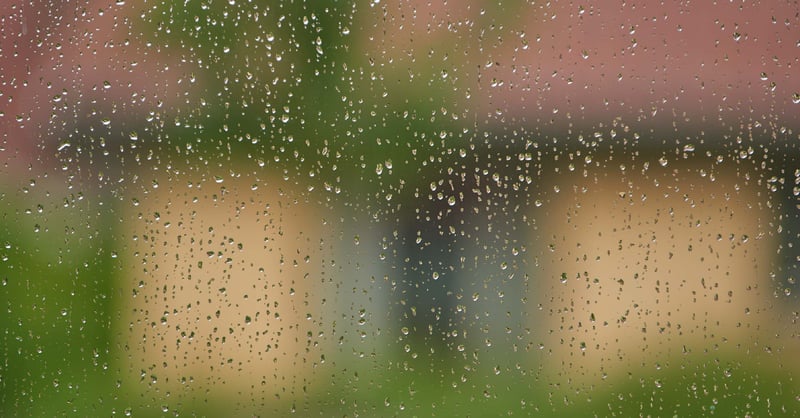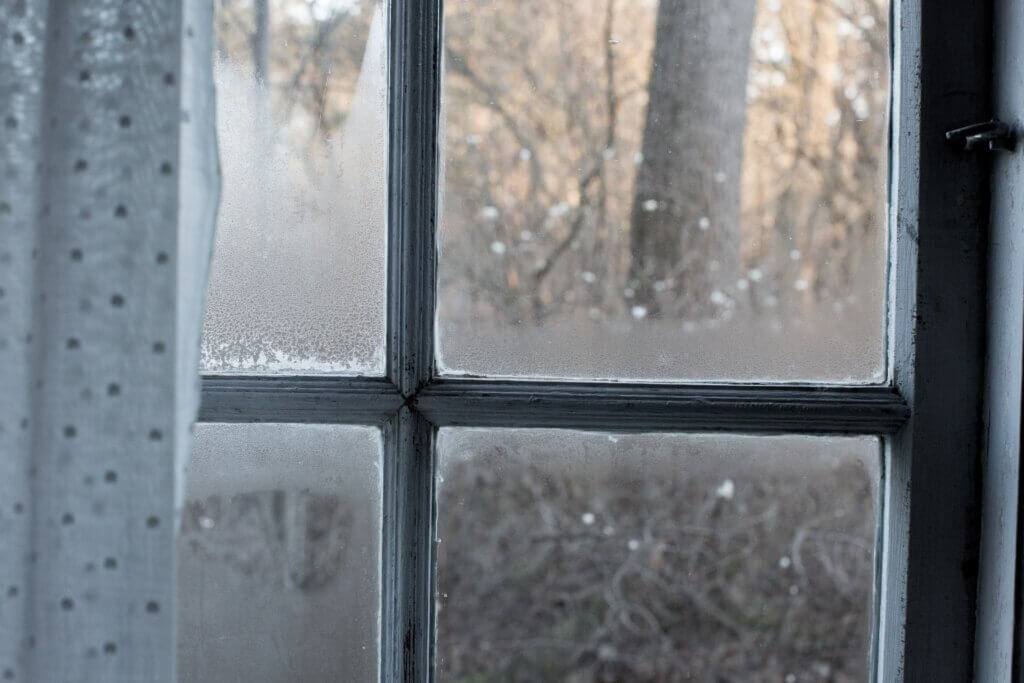You recently remodeled your home or invested in brand-new windows. At first, you loved the results! But as soon as the outside temperatures dropped, you saw condensation where you didn't before. Sound familiar? It's a story we hear a lot at East Side Glass, and we understand how concerning it can be for our Central Minnesota customers.
However, just because the condensation is occurring on your windows doesn't mean that your windows are necessarily to blame. In this blog, we'll explore the many reasons that condensation happens and what you can do to fix it!
What Is Condensation?
Condensation happens when humid air comes in contact with a cold surface. Your windows are a prime spot for this to happen because they're colder than your insulated walls. So if you have a problem with excess humidity anywhere in your home, your windows will provide you with your first clues.
Condensation can build up on either side of your window or between the panes. So in order to solve the problem, the first thing you'll need to determine is exactly where the problem is occurring.
What Causes Condensation Inside a Window?

Condensation inside a window or on other glass surfaces inside your home is often caused by a humidifier. But you may also see condensation on the interior of your windows in rooms where you're frequently using water, like bathrooms, laundry rooms, and kitchens. If you have a large party, you might even notice that your guests' breath might be humid enough to fog up a window!
If condensation wasn't a problem before, but you've recently replaced old, drafty windows or doors — or installed a new roof or siding — congratulations! The good news is that you've reduced air infiltration into your home and improved your energy efficiency! The bad news, however, is that your home will now retain more humidity.
When Is Interior Humidity Too High?
According to the Environmental Protection Agency (EPA), indoor humidity should be between 30-50% and should never exceed 60%. Some humidity is helpful for our skin and respiratory system, but too much of it isn't a good thing. Excessive humidity can encourage the growth of mold and mildew, and it can make your home more attractive to pests and dust mites.
Drier air, on the other hand, can help you get a better night's sleep. So if a spoiled view isn't enough of a reason to lower your humidity, you've got plenty more to choose from!
How To Reduce Excessive Humidity
If you have condensation inside your windows, it's important to address it before bigger problems, like mold and mildew, start to occur. Here are our top tips:
- If you use a humidifier regularly, try going without it or turning it down
- Run exhaust fans in your kitchen and bathrooms during and at least 20 minutes after bathing, showering, or cooking
- Use ceiling fans throughout your home to circulate the air
- Leave interior doors open as much as possible
- If none of the above solutions work, it might be time to Invest in a dehumidifier
If you only notice condensation now and then, you can also briefly open a window to let excess humidity escape. Yes, you will also lose some heat, but the loss will be negligible. Some people have had luck with placing rock salt or baking soda near their windows to absorb excess moisture, but ideally, one or more of the other solutions we've outlined will do the trick!
Can You Ever Just Ignore Condensation on Window Interiors?
Yes! There are a few cases where you can just ignore condensation on the inside of your windows. For example, wood, plaster, cement, and other building materials used in new construction and remodeling projects can produce a lot of moisture. So if you notice more condensation after a significant remodel, it might resolve on its own.
You might also notice more condensation right at the beginning of every heating season or when quick changes in temperature occur. You can probably ignore it if the problem goes away once temperatures stabilize. However, if you notice any peeling paint on your walls, mold, mildew, or any musty odors, it's time to tackle excess humidity.
What Causes Window Condensation on the Outside?

During warmer months, you might see some condensation on the outside of your windows early in the morning. It happens when the outside air is warm and humid, and the outside of your window is cooler.
However, unlike condensation on the interior of your windows, this isn't something you need to worry about. The condensation will likely clear as the day goes on.
However, if it bothers you, there are a few things you can try:
- Raise the temperature inside your home during warmer months
- Spray a windshield water repellent on the outside of your windows
- Trim any dense foliage around windows so air can circulate more easily
What Causes Condensation Between Window Panes?

If your windows fog up between the panes, then the most likely scenario is that your seal has failed. This can happen for any number of reasons, and if this has happened to you, then we have some good and bad news. First, the bad news. This isn't a problem you can ignore forever. It's not an emergency, but over time, water can collect between panes and crack the window.
Here's what we recommend instead:
- If your window is still under warranty, call the contractor who installed it
- If your warranty has expired, you can buy a new window or have a glass specialist repair your existing window for less
When Should You Call a Custom Glass Expert?
If you have skilled custom glass specialists in your area, you're in luck! Here are the scenarios where they can save homeowners (and property management companies) a great deal of money on windows:
- Your insulated or double-pane glass windows fog up between the panes
- A pane of glass is cracked, but otherwise, your windows are in good shape
- Your screens are torn, faded, or hard to remove
Of course, we specialize in glass, so if your problem is caused by excessive humidity, we probably won't be able to solve it for you. But chances are, we know another local business that can. We've been serving Central, MN since 1953, and we frequently work with other highly skilled contractors on large-scale projects for our residential and commercial clients.
However, if it sounds like window repair might be the solution you're looking for, click the link below!

